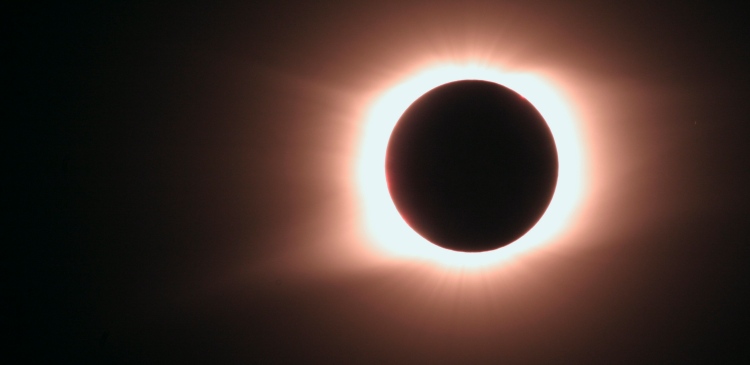In St. Petersburg on March 20 total solar eclipse occurs

March 20 residents of the northern capital will be able to observe a total solar eclipse.
According to astronomers, this day the Moon will cover the solar disk, and next appears the planet Venus.
It is noted that this astronomical phenomenon is so rare that there were only a few times in history. The next solar eclipse will occur only March 30, 2033. Especially clearly it will see the inhabitants of Murmansk, Arkhangelsk and Yekaterinburg.
In addition to St. Petersburg on March 20 eclipse heavenly body and see the residents of Perm Krai.
It was reported earlier that spring 2015 in Siberia come Total Lunar Eclipse .
Photo: open source
See also:
Scientists: Most women make purchases during ovulation
ESA has published detailed pictures of the comet Churyumov-Gerasimenko
Plants are better than animals suffer catastrophic changes
Scientists have discovered on Mars skull herbivorous dinosaur
Probe MAVEN first entered the atmosphere of Mars
The astronauts of the ISS crew will go into space
Scientists have discovered a gene that increases the brain
In Siberia, will open the 3D-center industry
Scientists: A man and a jellyfish have common ancestors
Chinese and Russian scientists have created a space laboratory
Specialists NASA: In the skies over the United States burned 220-pound meteorite
Scientist: The cause of disasters in the world could be the dark matter
Sputnik “Messenger-D1″ was in space 12 times longer put
“Proton-M” on March 19 will orbit a telecommunications apparatus
Scientists: After billions of years the sun will explode instantly
NASA revealed the first images of Pluto nobody Hydra
Scientists conduct an experiment in search of atoms parallel universes
NASA: In 2014, the Earth hit 100 tons of debris
In China, 19 February 2015 New arrived
Scientists propose to remove excess carbon dioxide from the atmosphere
RG Plekhanov and MESI join in the Research University
Astronomers photographed in space “hand of God”
Russia, India to develop a mini-version of the BrahMos
Scientists first saw the craters on Ceres and unknown white spots
Kursk scientists began testing prototype exoskeleton
Scientists: Due to the evolution of the children usually takes care of only one parent
Hubble photographed the collapsing star cluster Palomar
Scientists have discovered a “guest” in the solar system star
Truck “Progress M-26M” successfully docked to the ISS
News partners:
Newsletter:
No comments:
Post a Comment